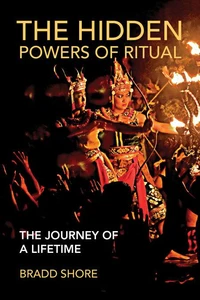At the Crossroads of Psychology and Anthropology. In Conversation with Jerome Bruner
Par :Formats :
Disponible dans votre compte client Decitre ou Furet du Nord dès validation de votre commande. Le format ePub protégé est :
- Compatible avec une lecture sur My Vivlio (smartphone, tablette, ordinateur)
- Compatible avec une lecture sur liseuses Vivlio
- Pour les liseuses autres que Vivlio, vous devez utiliser le logiciel Adobe Digital Edition. Non compatible avec la lecture sur les liseuses Kindle, Remarkable et Sony
- Non compatible avec un achat hors France métropolitaine
 , qui est-ce ?
, qui est-ce ?Notre partenaire de plateforme de lecture numérique où vous retrouverez l'ensemble de vos ebooks gratuitement
Pour en savoir plus sur nos ebooks, consultez notre aide en ligne ici
- Nombre de pages284
- FormatePub
- ISBN978-0-262-38153-6
- EAN9780262381536
- Date de parution18/02/2025
- Protection num.Adobe DRM
- Taille2 Mo
- Infos supplémentairesepub
- ÉditeurThe MIT Press
Résumé
A prominent anthropologist in conversation with one of America's most influential psychologists and educators. In 1997, anthropologist Bradd Shore set out to interview the distinguished psychologist Jerome Bruner; his theme: psychology and anthropology-what links and separates the disciplines. What emerged over the course of four days was something far broader and more interesting: a wide-ranging conversation that explored the study of human behavior and meaning while capturing the unique energy, complexity, and charm of Bruner's manner of thinking through dialogue.
This conversation appears for the first time in At the Crossroads of Psychology and Anthropology, offering readers unprecedented insight into Bruner's thought and influences-and a unique chance to share the pleasure of his company. Edited into chapters with brief introductions, the book begins with the influences shaping Bruner's career, his role in the founding of cognitive psychology, his debates with fellow psychologists, his collaborations with his notable students, and his emerging interest in cultural psychology.
The talk touches on contrasting methodologies, approaches to language, sense perception, violence, law, the role of categories in thinking, cultural relativism, the search for universals, and the complex interactions of culture and mind. In addition to portraying two approaches to the human sciences, At the Crossroads of Psychology and Anthropology is an intimate portrait of Bruner, a major shaper of modern psychology-and a demonstration of the dialectical and dialogical nature of his thought in all its fluidity and depth.
This conversation appears for the first time in At the Crossroads of Psychology and Anthropology, offering readers unprecedented insight into Bruner's thought and influences-and a unique chance to share the pleasure of his company. Edited into chapters with brief introductions, the book begins with the influences shaping Bruner's career, his role in the founding of cognitive psychology, his debates with fellow psychologists, his collaborations with his notable students, and his emerging interest in cultural psychology.
The talk touches on contrasting methodologies, approaches to language, sense perception, violence, law, the role of categories in thinking, cultural relativism, the search for universals, and the complex interactions of culture and mind. In addition to portraying two approaches to the human sciences, At the Crossroads of Psychology and Anthropology is an intimate portrait of Bruner, a major shaper of modern psychology-and a demonstration of the dialectical and dialogical nature of his thought in all its fluidity and depth.
A prominent anthropologist in conversation with one of America's most influential psychologists and educators. In 1997, anthropologist Bradd Shore set out to interview the distinguished psychologist Jerome Bruner; his theme: psychology and anthropology-what links and separates the disciplines. What emerged over the course of four days was something far broader and more interesting: a wide-ranging conversation that explored the study of human behavior and meaning while capturing the unique energy, complexity, and charm of Bruner's manner of thinking through dialogue.
This conversation appears for the first time in At the Crossroads of Psychology and Anthropology, offering readers unprecedented insight into Bruner's thought and influences-and a unique chance to share the pleasure of his company. Edited into chapters with brief introductions, the book begins with the influences shaping Bruner's career, his role in the founding of cognitive psychology, his debates with fellow psychologists, his collaborations with his notable students, and his emerging interest in cultural psychology.
The talk touches on contrasting methodologies, approaches to language, sense perception, violence, law, the role of categories in thinking, cultural relativism, the search for universals, and the complex interactions of culture and mind. In addition to portraying two approaches to the human sciences, At the Crossroads of Psychology and Anthropology is an intimate portrait of Bruner, a major shaper of modern psychology-and a demonstration of the dialectical and dialogical nature of his thought in all its fluidity and depth.
This conversation appears for the first time in At the Crossroads of Psychology and Anthropology, offering readers unprecedented insight into Bruner's thought and influences-and a unique chance to share the pleasure of his company. Edited into chapters with brief introductions, the book begins with the influences shaping Bruner's career, his role in the founding of cognitive psychology, his debates with fellow psychologists, his collaborations with his notable students, and his emerging interest in cultural psychology.
The talk touches on contrasting methodologies, approaches to language, sense perception, violence, law, the role of categories in thinking, cultural relativism, the search for universals, and the complex interactions of culture and mind. In addition to portraying two approaches to the human sciences, At the Crossroads of Psychology and Anthropology is an intimate portrait of Bruner, a major shaper of modern psychology-and a demonstration of the dialectical and dialogical nature of his thought in all its fluidity and depth.




